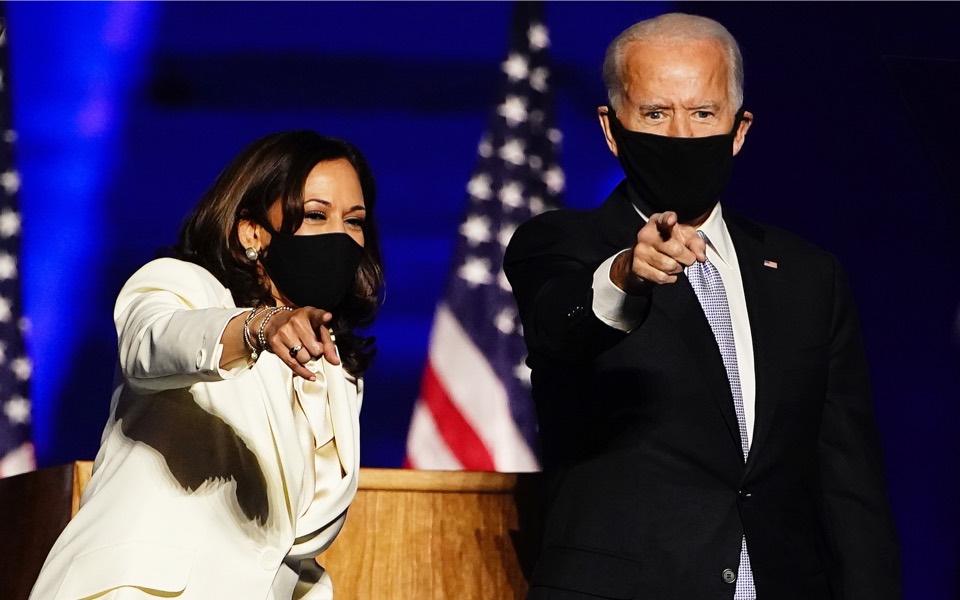‘All for an empty tunic,’ all for an American Dream

Joe Biden’s acceptance speech reminded the world that there still exists a different kind of politics from Trump’s divisive lying rhetoric. In his first address as president-elect, Biden was right in alluding to “a nation that we know we can be – a nation united.” The last four years of Donald Trump’s presidency – and more so the last spring with the immeasurable harm that the coronavirus inflicted on human lives and livelihoods and the murder of George Floyd – revealed in a blinding bright light the long-standing disunity and divisions of the United States of America.
Dreaming of and planning for where this country must go to heal is the right approach right now. But should this be conflated with “the battle for the soul of America,” as Biden said in the same speech? All nations have their big narratives and these can only become more poignant at certain inflection points in their history. The essence of a nation, its soul is allegedly made up of these. The question is whether the US can go where it has to by evoking the narratives of the past that may have served some, but too few, Americans well.
As many of my generation, I feel part of the American culture, even though I have never lived in the US. When parts of Europe were much poorer and less advanced than the US, such as a my home country Greece in the 1980s, we looked up to what the US was setting as world-leading trends in popular culture, in the arts and social movements. And later, I closely followed its politics, its intellectual direction, its successes and failures on the world stage as well as in its own land. While admirable in its appeal for endless possibilities, and its affordance for cultural exploitation and exportation, the very essence of what it means to be an American in that land of freedom and opportunity, the American Dream, seems now more than ever before to be a phantom.
The powerful optimistic narrative of the American Dream rests on the assumption that everyone can attain their own version of success. As such it centers on the individual, his willpower and hard work, while ignoring the rest of society, our co-dependence on our fellow humans, the ones who care for us, but also the ones who don’t, the ones who teach us, the ones who treat us, the ones who help us or not, the ones who listen to us or not. It places the onus of success, or failure for that matter, on the individual, rather than on society. How can a society become more equal, less divisive, more caring, less individualistic, more united when it treats its members as individuals and cherishes individual success, especially when it comes despite all? It is time to realize that the grand narrative of the American Dream has run out of steam, lying on the pavement at the Black Lives Matter Plaza in Washington like a deflated balloon next to a used face mask.
The American Dream was tailored to the whiteness of the population, seemed attractive to immigrants (until they realized that they were not supposed to have the same dream), but in the end it has become a living nightmare: for the angry white men who feel that they are losing their place and privileges, for the black men and women who are made to feel that they are stealing other people’s dreams, for all those who despite their best intentions and efforts do not make it. Whatever it was, it can no longer be.
If the “soul of America” is – still – wrapped in the tunic of the American Dream, it is a phantom. And unless the American people force their political, financial, academic and media establishment to undress America’s soul and redress her imbalances, inequalities and intolerance with a more caring and inclusive social fabric, then I recall and agree with the words of the Greek poet George Seferis in his take on the Trojan War:
“So much suffering, so much life,
went into the abyss
all for an empty tunic, all for a Helen.”
And the next populist autocrat, a child of that American Dream nevertheless, will be welcomed by millions of Americans. To prevent that from happening, a different American dream is needed, alongside the social means to turn it into a reality.
Manos Tsakiris is a professor of psychology at Royal Holloway, University of London, and the Warburg Institute, School of Advanced Study, University of London.




